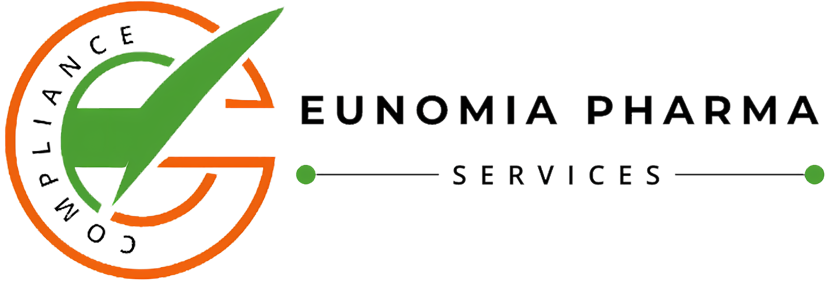Stakeholder engagement is critical to pharmaceutical progress. It's a catalyst for scientific progress, stronger healthcare systems, and ultimately, better outcomes for patients. Done right, it builds meaningful partnerships with healthcare professionals (HCPs), drives innovation and ultimately benefits patients. However, if not handled properly, it can expose businesses to substantial regulatory risk, particularly under tight self-regulatory codes such as EFPIA and IFPMA.
So, how can pharma achieve a balance between meaningful engagement and compliance?
Let’s explore real-world challenges, practical solutions, and best practices to ensure your stakeholder interactions remain productive and fully compliant.
The Compliance Framework: EFPIA & IFPMA
Compliance codes from the EFPIA and the IFPMA provide clear, detailed guidance on how pharmaceutical companies should interact with stakeholders ethically and transparently. They’re not just regulatory checklists, they reflect the industry’s commitment to integrity and public trust.
The compliance framework covers important aspects such as:
- Disclosure of value transfers to HCPs, HCOs and other external stakeholders
- Country specific limitations on gifts, hospitality, and sponsorship
- Standards for collaboration with patient advocacy groups
- Clear Guidelines for the promotion of medicinal products.
Noncompliance results in reputational harm, legal penalties, strained stakeholder confidence and compromises overall credibility.
Real-World Dilemma #1: Excessive Hospitality in HCP Engagement
Compliance codes from the EFPIA and the IFPMA provide clear, detailed guidance on how pharmaceutical companies should interact with stakeholders ethically and transparently. They’re not just regulatory checklists, they reflect the industry’s commitment to integrity and public trust.
The compliance framework covers important aspects such as:
- Disclosure of value transfers to HCPs, HCOs and other external stakeholders
- Country specific limitations on gifts, hospitality, and sponsorship
- Standards for collaboration with patient advocacy groups
- Clear Guidelines for the promotion of medicinal products.
Noncompliance results in reputational harm, legal penalties, strained stakeholder confidence and compromises overall credibility.
Real-World Dilemma #1: Excessive Hospitality in HCP Engagement
Scenario
A global pharmaceutical enterprise sponsored a distinguished physician to speak at an international conference. The physician was booked on a Business-class flight and scheduled to stay in a five-star hotel. While the meeting had some educational value, the hospitality provided far exceeded what is acceptable under EFPIA’s framework.
Scenario
The gesture was interpreted as an inducement rather than reasonable payment for services.
Scenario
Locally and EFPIA-compliant policies were put into place that restricted hospitality to economy travel, modest accommodation, documented justifiable contracts, and rigid accompanying rationales. The company further trained its commercial teams on acceptable value thresholds.
Real-World Dilemma #2: Sponsorship of Patient Organizations
Scenario
A sponsor of a patient awareness campaign received criticism after it paid for the event’s logistics in exchange for displaying its logo on the event banners. The sponsorship raised concerns regarding indirect promotion of their therapeutic products.
What Went Wrong
Branding and visibility created the impression of a promotional campaign that disqualified the concept of patient education.
Resolution
The corporation put in place a disclosure policy, made sure that all materials were mutually reviewed, and kept corporate identity and product advertising separate. To comply with code requirements, the sponsorship was declared in full transparency.
How to Get the Balance Right
Striking the right balance requires more than policies, it requires supporting systems, and collective accountability. Here’s a framework to help navigate the complexities of stakeholder engagement:
Develop Clear SOPs for Engagement
Standard operating procedures must address hospitality, sponsorships, speaker engagements, grants, etc. along with the established engagement process of the organisation. These interactions form the boundaries of engagement with various stakeholders.
Drives Train for Real-World Scenarios
Scenario-based, role-specific training equips internal teams with the “why” behind compliance policies and prepares them for situational decisions where the boundaries might be ambiguous.
Centralize Documentation and Approvals
Consistency in documentation, coupled with multi-tier approval systems, strengthens audit trails and accountability, which is critical for healthcare professional (HCP) engagements, event sponsorships, and transfer of funds.
Disclose Transparently
Audit and Monitor Regularly
Monitoring engagement processes and conducting frequent reviews strengthens internal controls and readiness for outside scrutiny, while proactive compliance audits bolster governance by identifying potential non-compliance risks before they develop into problems.
Final Thoughts
Engagement with stakeholders does not need to be a compliance risk; rather, it can serve as a strategic advantage. When conducted ethically and with transparency, stakeholder engagement enhances collaboration and trust while elevating organizational reputation as an industry leader responsible for shaping the future.
To balance these objectives, Eunomia Pharma Services helps pharmaceutical companies with bespoke compliance strategies, risk mitigation frameworks, and training resources aligned with EFPIA and IFPMA standards.
Prepared to enhance your stakeholder engagement? Let’s turn compliance into your organization’s advantage.




